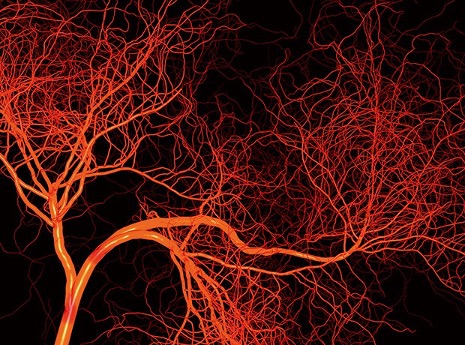CMT Research Foundation invests in research project to develop treatments for CMTs
August 15, 2024
Source: drugdu
 689
689
 The CMT Research Foundation (CMTRF) has invested in a research project based at Nationwide Children’s Hospital, US, to develop new vehicles for delivering gene therapies to treat several types of Charcot-Marie-Tooth disease (CMT).
The CMT Research Foundation (CMTRF) has invested in a research project based at Nationwide Children’s Hospital, US, to develop new vehicles for delivering gene therapies to treat several types of Charcot-Marie-Tooth disease (CMT).
The new project aims to improve the treatment efficacy and safety of gene therapies for forms of CMTs, including CMT1A, the most prevalent form, which accounts for 50% of all patients with nerve-damaging disorder.
Recognised as a rare peripheral neuropathy disease that affects nearly three million people globally, CMT is a group of inherited conditions that damage the peripheral nerves, which are found outside the main central nervous system.
The development of safe and effective gene therapies for CMT requires the delivery of a therapeutic genetic payload into the peripheral nervous system, which specifically targets Schwann cells, a type of glial cells that help form the myelin sheath around the nerve fibres, for types of CMT including CMT1A, 1B, 4C, 4J and 1X. This is currently performed using adeno-associated viral (AAV) vectors for gene therapies.
Afrooz Rashnonejad, principal investigator, Center for Gene Therapy, Abigail Wexner Research Institute, Nationwide Children’s Hospital, explained that it is a challenge to get “sufficient delivery of the therapeutic payload to the peripheral nerve” when developing AAV-based gene therapy for CMT.
“Current studies on AAV delivery systems studies in mice have shown that only a portion of Schwann cells in the peripheral nerve are transduced. This is more challenging when you want to target Schwann cells in large animals, including non-human primates and humans,” said Rashnonejad.
The patient-led, non-profit foundation, which focuses on delivering treatments and cures for CMT, has funded a total of 24 projects, of which eight have been completed and have produced five clinical candidates, of which Novartis acquired one for $1bn.
In April, the CMTRF invested in a study led by researchers at the University of Illinois at Chicago to investigate whether a commercially available drug could potentially treat X-linked CMT in mouse models.
https://cmtrf.org/
By editorRead more on
- Gan & Lee Pharmaceuticals’ new PROTAC drug GLR2037 tablets have been approved for clinical trials to enter the field of prostate cancer treatment March 3, 2026
- AideaPharmaceuticals plans to raise no more than 1.277 billion yuan through a private placement to focus on the global clinical development of innovative HIV drugs March 3, 2026
- Giant Exits! Its Star Business Acquired March 3, 2026
- Focusing on cardiovascular and cerebrovascular diseases! OpenMediLead Medical Intelligence Dual Engines Launch Internal Testing, Connecting Drug Development and Clinical Diagnosis in a Closed Loop March 3, 2026
- Innovent Biologics Announces Approval of New Indication for BTK Inhibitor “Pitubrutinib” in China March 3, 2026
your submission has already been received.
OK
Subscribe
Please enter a valid Email address!
Submit
The most relevant industry news & insight will be sent to you every two weeks.



